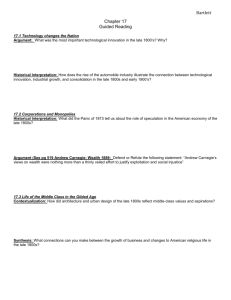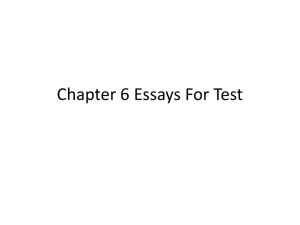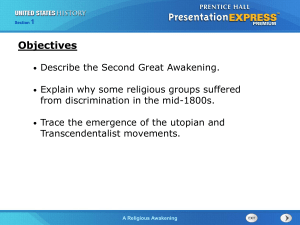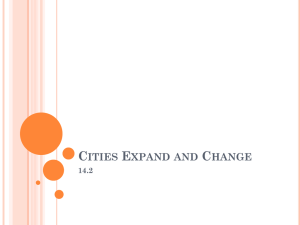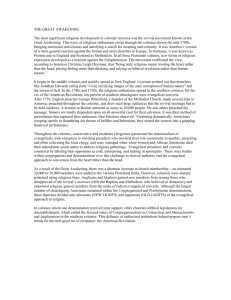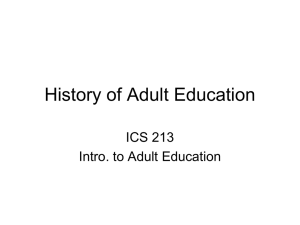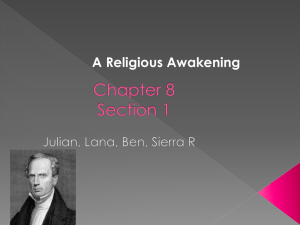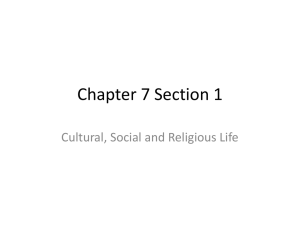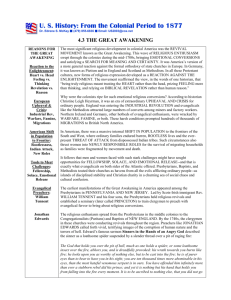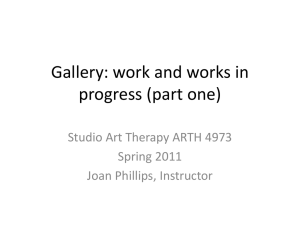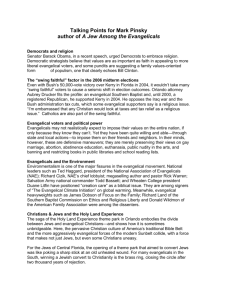Section 1 Notes
advertisement
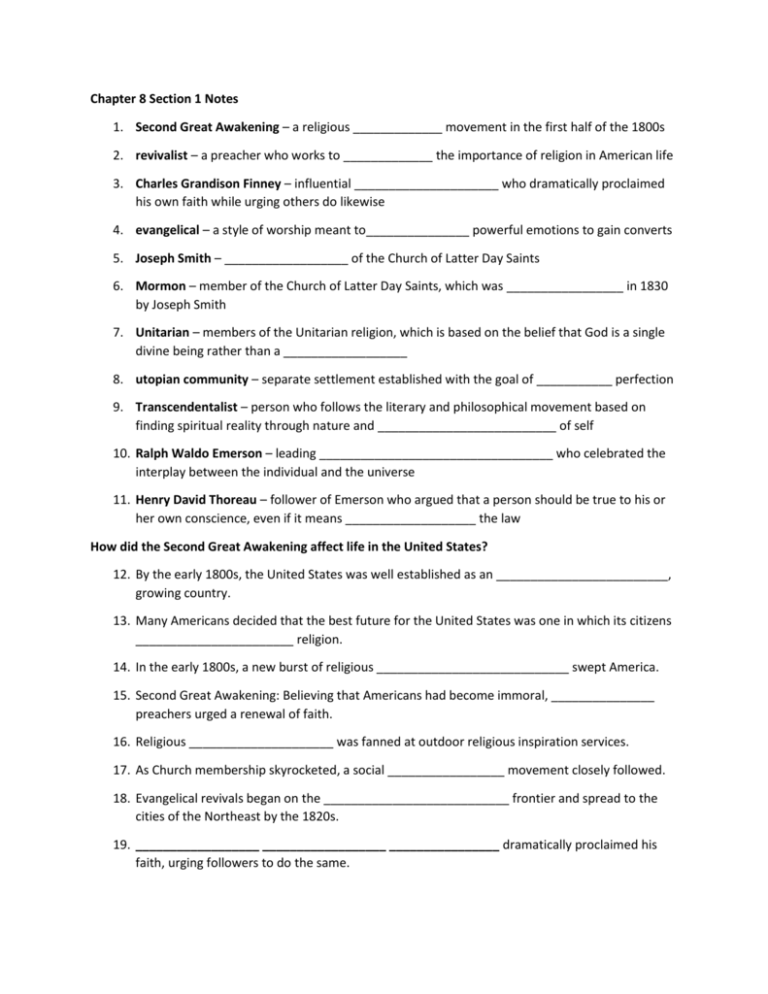
Chapter 8 Section 1 Notes 1. Second Great Awakening – a religious _____________ movement in the first half of the 1800s 2. revivalist – a preacher who works to _____________ the importance of religion in American life 3. Charles Grandison Finney – influential _____________________ who dramatically proclaimed his own faith while urging others do likewise 4. evangelical – a style of worship meant to_______________ powerful emotions to gain converts 5. Joseph Smith – __________________ of the Church of Latter Day Saints 6. Mormon – member of the Church of Latter Day Saints, which was _________________ in 1830 by Joseph Smith 7. Unitarian – members of the Unitarian religion, which is based on the belief that God is a single divine being rather than a __________________ 8. utopian community – separate settlement established with the goal of ___________ perfection 9. Transcendentalist – person who follows the literary and philosophical movement based on finding spiritual reality through nature and __________________________ of self 10. Ralph Waldo Emerson – leading __________________________________ who celebrated the interplay between the individual and the universe 11. Henry David Thoreau – follower of Emerson who argued that a person should be true to his or her own conscience, even if it means ___________________ the law How did the Second Great Awakening affect life in the United States? 12. By the early 1800s, the United States was well established as an _________________________, growing country. 13. Many Americans decided that the best future for the United States was one in which its citizens _______________________ religion. 14. In the early 1800s, a new burst of religious ____________________________ swept America. 15. Second Great Awakening: Believing that Americans had become immoral, _______________ preachers urged a renewal of faith. 16. Religious _____________________ was fanned at outdoor religious inspiration services. 17. As Church membership skyrocketed, a social _________________ movement closely followed. 18. Evangelical revivals began on the ___________________________ frontier and spread to the cities of the Northeast by the 1820s. 19. __________________ __________________ ________________ dramatically proclaimed his faith, urging followers to do the same. 20. _____________ _______________, later president of the Lane Theological Seminary, trained new evangelical preachers. 21. Many sermons preached of millennialism and the belief that the U.S. was leading the world into this period of glory that would follow Jesus’ “____________________ ____________________.” 22. _____________________ or camp meetings sometimes went on for days. They often included inspiring music and plentiful food. 23. As this religious fervor grew: some American said the government should endorse religion to encourage public ____________________, thus beginning the debate over church and state. 24. African Americans embraced religion—following their enslavement, it promised an afterlife of eternal _____________________. 25. ____________________revolts increased, with their leaders claiming religious inspiration. 26. Several new religious groups formed. 27. Unitarians: A _______________ Christian group, which influenced many subsequent religious movements. 28. Church of Jesus Christ of Latter-day Saints: Also known as ___________________. This religion quickly attracted new members. 29. Most Americans were Protestant. Some were intolerant of other religions. One group targeted for intolerance was the Mormons, founded by _________________ ________________. 30. The Mormons were attacked in New York, Ohio, and _______________________________. 31. They fled to __________________________, Illinois, where Smith was murdered in 1844. 32. Finally, _______________ _______________ led them to the Great Salt Lake in Utah, far from hostile neighbors. 33. _______________________ and ___________________people were also targeted. 34. Some believed that Catholic ________ to the Pope was incompatible with American democracy. 35. State constitutions ________________ Jewish people from holding office. 36. Communal living settlements formed in the early 1800s. Their members envisioned a more perfect life by __________________________________ themselves from society. 37. Some 50 _____________________communities, which sought to share property, labor, and family life, were organized. These settlements did not last long. 38. The _______________________, however, flourished during the early 1800s, largely because they produced high-quality crafts and produce. 39. _____________________________________ believed people could go beyond their senses, or transcend them, to learn universal truths and become closer to God. 40. They found inspiration through__________________ and one’s own conscience, rather than in religious doctrine. 41. The leading Transcendentalist, ___________ ____________ _____________, celebrated his beliefs in sermons, essays, and poems; published in The Dial, the group’s magazine. 42. ____________ ____________ _____________, one of the most important Transcendentalists, was jailed in 1846 for refusing to pay taxes to support an “immoral” war against Mexico. 43. In _____________ _________________, he argued that a person must be true to his conscience even if it means breaking the law. 44. In ___________________, he wrote about the religious inspiration he derived from nature by living alone in the woods for two years.
